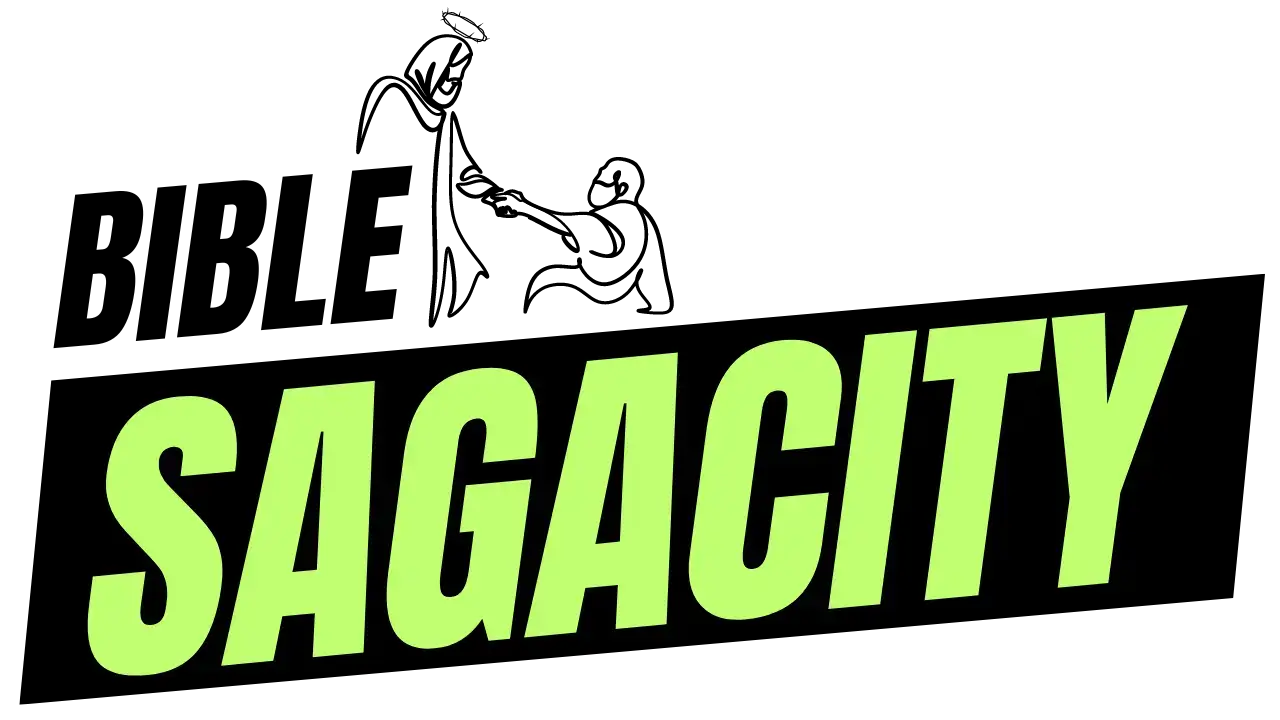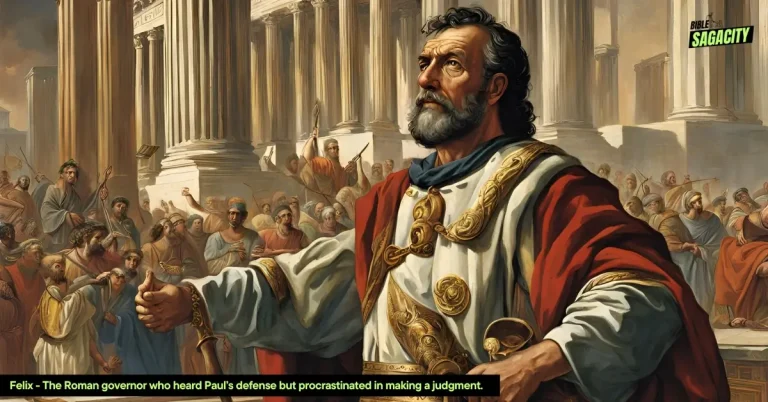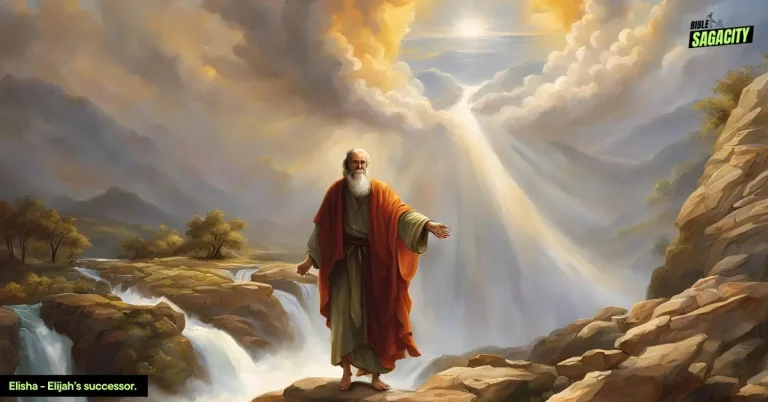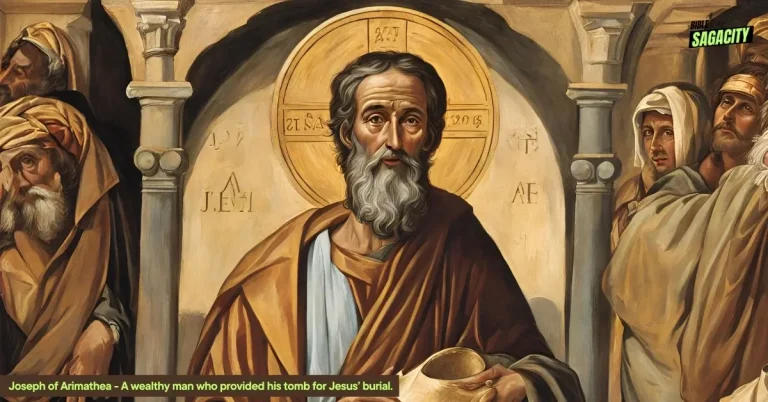Oldest Book in The Holy Bible? Check It Out Here
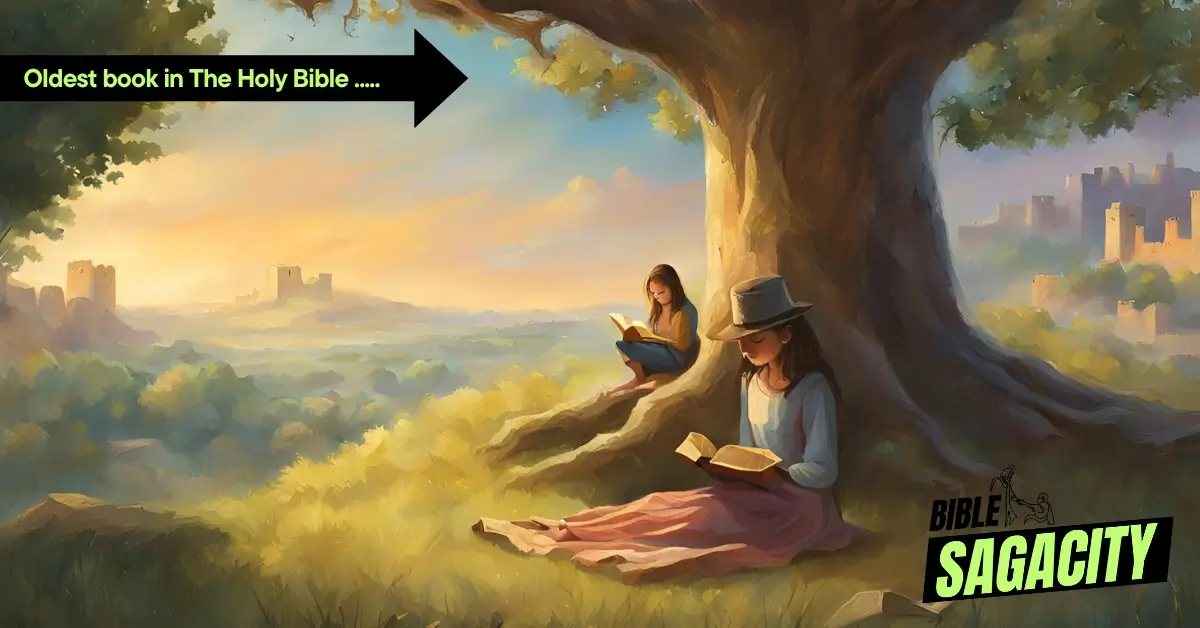
The Holy Bible is one of the most important and oldest religious books in the world. This book was written by different authors and it is a collection of all of them. The Bible has two major parts, one is the Old Testament and the other is the New Testament. Both are important and sacred to Jews, while the New Testament is especially important only to Christians.
It is a bit difficult to guess which one is the oldest book of the Holy Bible. Because the book of the Bible is not arranged in terms of history and it was written in different periods. But experts say that the book of Job is the most ancient book.
Introduction of Book of Job
The Book of Job is a philosophical book that raises questions about the suffering of life and the wisdom of God. The book tells the story of Job who faces difficulties in testing his faith. It addresses the topic of human suffering and Divine judgment. In the book of Job, his story is told that he was a very good and faithful person and he had a lot of faith. He had wealth, children and honor, but then difficulties came to him. Wealth ended, his body became sick and his children died.
Despite this, Job did not complain about God, but showed the strength of faith. A question was raised in his story that does the faithful servants of God also face difficulties? His friends used to ask him if his troubles were due to his sins and Job asked his God for an answer.
Finally, God told Job that man’s intellect and knowledge are limited. What is the will, what is the wisdom, it is not enough for man to understand, and then God ended his difficulties. God appreciated Job’s patience and loyalty and again gave him health, children and wealth.
Verse
In the land of Uz there lived a man whose name was Job. This man was blameless and upright; he feared God and shunned evil. (Job 1:1)
Historical Key Points
Time of Composition
According to different scholars:
- From 7th to 4th century BCE
- Around 2000-1800 BCE
Author
Not confirmed
Language
Hebrew language
Style
Poetic & Philosophical
Historical context of Book of Job
The authenticity of this book is not available, but experts believe that this book was written around the time of Prophet Abraham (peace be upon him), which is between 1800 and 2000 years before Christ. This book can be considered ancient due to the style, content and language. It has influences from Arabic and Aramaic languages which indicate its antiquity. In the book of Job, Job lived hundred and forty years.
Verse
After this, Job lived a hundred and forty years; he saw his children and their children to the fourth generation. (Job 42:16)
Composition of Book of Job
The book of Job is very complicated. Some scholars say that it was written during the time of Moses, but this book is even older than the time of Moses because it does not mention Israelites. If it had been written during the time of Moses then the Israelites should have been mentioned. The writer of this book is unknown. It is not known who wrote this complicated book. However, people say that there would be a very old prophet who wrote this book. Most of the wisdom and poetic things have been discussed in this book. This book also includes Job’s life incidents and how he suffered and cursed himself.
Verse
So these three men stopped answering Job, because he was righteous in his own eyes. But Elihu son of Barakel the Buzite, of the family of Ram, became very angry with Job for justifying himself rather than God. (Job 32:1-2)
Verse
After this, Job opened his mouth and cursed the day of his birth. (Job 3:1-2)
Significance of Book of Job
This book tells about the difficulties of Job which he had to face. Job faced these difficulties and suffered a lot. When Job faced these difficulties, these difficulties forced him to think whether he is a good man of God or not. If he is a good person then why did he suffer? Job took a long time to understand that God sends hardships to test his faith. The purpose of hardships is never to hurt and punish people. These troubles also happen to the righteous servants of God and whoever faces these troubles with full faith, then God gives them a high place.
Verse
Indeed, I know that this is true. But how can mere mortals prove their innocence before God? (Job 9:2)
Suffering of Job in The Book of Job
The Book of Job describes the difficulties of Job . Job was very rich. He had children and was highly respected in the family. He was also very healthy. Once it happened that his fields, crops, animals and wealth were gone and all his children died. Job was very worried about this but he asked God for help and was sure that God would help him. Then God sent more difficulties to Job. God made Job’s health worse. Job developed a very painful boil. Each of his boils was causing great pain. His family members who respected him very much said that he must have committed sins due to which God has sent so many trials on him. Job was greatly disturbed by this and his heart was broken. He requested God and asked why all this is happening to me. Later, he got to know that God was testing him. And one of the most important tests was that God wanted to see Job’s faith, whether he remained steadfast despite all these tests.
Verse
But he knows the way that I take; when he has tested me, I will come forth as gold. (Job 23:10)
Verse
At this, Job got up and tore his robe and shaved his head. Then he fell to the ground in worship and said: “Naked I came from my mother’s womb, and naked I will depart. The Lord gave and the Lord has taken away; may the name of the Lord be praised.” (Job 1:20-21)
Response of God Towards Job’s Sufferings
Job was very worried about these difficulties. He asked God why all this was happening to him. Is he not a good man? Has he committed any sin? Which caused him so much pain. So God spoke to him and said, “No, you have not committed any sin and you are a very good servant of mine, but do you know that when I created the sky, you were there?” All the things on earth, the sky, the river, the sea, were you there when I created them all? These questions puzzled Job. God said that He has created so many creatures and He understands and knows the language of every creature. He also has complete knowledge about every creature and thing in the world. These words made Job realize that his intellect is very limited while God knows everything that a human cannot know. Job’s troubles had a purpose and that purpose was known only to God, a human being could not know.
Verse
Where were you when I laid the earth’s foundation? Tell me, if you understand. (Job 38:4)
Verse
Have you ever given orders to the morning, or shown the dawn its place. (Job 38:12)
Verse
Then Job replied to the Lord: “I know that you can do all things; no purpose of yours can be thwarted. You asked, ‘Who is this that obscures my plans without knowledge?’ Surely I spoke of things I did not understand, things too wonderful for me to know. “You said, ‘Listen now, and I will speak; I will question you, and you shall answer me.’ My ears had heard of you but now my eyes have seen you. Therefore I despise myself and repent in dust and ashes.” (Job 42:1-6)
Friends And Role of Job’s Friends
Some of his friends came to see him. When Job was tested by God and his health deteriorated, his friends came to Job and started looking for the reason for his troubles. One of his friends said that you have done something sinful because of which God is angry with you. That is why he is punishing you. Job said that I have not committed any sin. I always did what God told me to do. Job’s friends did not listen to him. The words of these friends worried Job more and Job was forced to think why he was facing so many problems and troubles.
Verse
Consider now: Who, being innocent, has ever perished? Where were the upright ever destroyed? (Job 4:7)
Verse
Surely God does not reject one who is blameless or strengthen the hands of evildoers. (Job 8:20)
What is The Structure of the Book of Job?
The book of Job is written in a very hard poetic way. This book contains dialogue in poetic style so it is difficult to understand the context of the book and story. However, this book tells the story of Job’s life. Job suddenly faced difficulties from God, and Job tried to get an answer that why he had to face so many difficulties. The second part of the book stated that Job’s friends told him that the reasons of his problems could be his sins and because of these sins, God has sent punishment on him. The third part of the book talks about the dialogue between God and Job. In this, God told him the reason of his hardships.
What is the Context of the Book of Job Culturally And Religiously?
There is also a lesson for us in the story of the book of Job. In this book, religious and cultural things have been discussed and it talked about God’s justice, man’s trial and man’s rewards. From which we also get guidance about our life. This book is an excellent lesson for the people of that time till today.
Verse
Not only so, but we also glory in our sufferings, because we know that suffering produces perseverance; perseverance, character; and character, hope. (Romans 5:3-4)
Verse
When a period of feasting had run its course, Job would make arrangements for them to be purified. Early in the morning he would sacrifice a burnt offering for each of them, thinking, “Perhaps my children have sinned and cursed God in their hearts.” This was Job’s regular custom. (Job 1:5)
Book of Job as a Wisdom Literature
Wisdom is mentioned in the book of Job. By reading this, people understand what conditions can happen to a person and how God does justice. If God tests his servant, then there is some secret behind it. God’s intellect is infinite and man’s intellect is limited. A man cannot understand God’s plans. Therefore, this book gives us answers to questions under a wisdom literature.
Verse
And he said to the human race, “The fear of the Lord—that is wisdom, and to shun evil is understanding.” (Job 28:28)
Restoration of Job’s Sufferings
It is written in the book of Job that God gave many trials to him but job tried to be steadfast. But there were whispers in his mind, he asked God. When God told him, Job believed that his intellect is very limited and that there is always some specific purpose behind God’s hardships. Job’s faith was renewed by God’s answer. Because of Job’s faith and steadfastness, God blessed him with excellent health, wealth and children again. The story of Job is a lesson for us that we should remain steadfast in every difficult situation and have faith in God.
Verse
After Job had prayed for his friends, the Lord restored his fortunes and gave him twice as much as he had before. (Job 42:10)
Verse
As you know, we count as blessed those who have persevered. You have heard of Job’s perseverance and have seen what the Lord finally brought about. The Lord is full of compassion and mercy. (James 5:11)
Human’s Sufferings And Book of Job
The story of Job tells us that God brought his beloved servant into trouble, but his purpose was not to punish him, but to test him and strengthen his faith. The story of Job teaches us that whenever a person is faced with difficulties, it does not mean that it is a doom. Maybe those difficulties came to test the servant. Therefore, difficulties can befall bad people as well as good people.
Verse
He replied, “You are talking like a foolish woman. Shall we accept good from God, and not trouble?” In all this, Job did not sin in what he said. (Job 2:10)
Verse
It is unthinkable that God would do wrong, that the Almighty would pervert justice. (Job 34:12)
Insight in The Book of Job According to Psychology
The story of Job is very emotional. In this, a healthy and wealthy person suffers and he becomes sick from being healthy. But still he believes in God. When troubles befall him, his loved ones misunderstand him. Hence, Job becomes very sick mentally and physically. But he has faith in God and because of his faith he spends a period of patience and later God gives him health and wealth again. But it is a very difficult task to pass the time of trial that has come upon him because at that time you have no one. God tests you and people turn away from you. Mental problems, depression and anxiety are everywhere. Therefore, problems have a great impact on a person mentally.
Verse
Why did I not perish at birth, and die as I came from the womb? (Job 3:11)
Job’s Life as a Model of Patience
Job’s life gives us a lesson of patience that if we are caught by hardships we should face it with patience. If we remain steadfast, then God will definitely bless us again.
Verse
As you know, we count as blessed those who have persevered. You have heard of Job’s perseverance and have seen what the Lord finally brought about. The Lord is full of compassion and mercy. (James 5:11)
Verse
I consider that our present sufferings are not worth comparing with the glory that will be revealed in us. (Romans 8:18)
Comparison of Book of Job With Ancient Books
Pentateuch
Another ancient book of the Holy Bible is called the Pentateuch. It is a collection of five books: Genesis, Exodus, Numbers and Istana. These books are attributed to Prophet Moses (peace be upon him) and are the basic books of the Jewish religion.
Historical Key Points
Time of Composition
According to different scholars:
- 13th century BCE
- 10th -15th century BCE
Author
Traditional: Moses
Modern: Different contributors
Language
Hebrew language with Aramaic influences
Style
It includes Genealogies, Law, Narrative and Poetry.
Genesis
The book of Genesis contains the creation of the world, the story of Adam and Eve, the story of Abraham and his descendants, and the story of Noah‘s slab. This book was written about 1400 to 1500 years before Christ. It provides the early stories of creation of men, Divine relationship and emergence of sin.
Historical Key Points
Time of Composition
According to different scholars:
- 2000-1500 BCE
- 5th century BCE
Author
Traditional: Moses
Modern: Different Contributors
Language
Hebrew language with ancient Semitic script
Style
It includes Genealogies, myths, stories, prose and Poetry.
Exodus
Book of Exodus includes the story of Moses and the Israelites escaping from Egypt. In this book, it is described; when Moses was born, Pharaoh‘s oppression and the Israelites leaving Egypt. In the book of Exodus, promises with Israelites, the power of God and the commandments of the Torah are highlighted.
Historical Key Points
Time of Composition
According to different scholars:
- 13th to 15th century BCE
- 12th century BCE
Author
Traditional: Moses
Modern: Different Contributors
Language
Hebrew language
Style
It includes Law, Narrative and Poetry.
Books of Prophets
The Old Testaments also includes the books of the great prophets like Isaiah, Jeremiah, Ezekiel and Daniel. They contain the stories of the prophets, their messages, prophecies and commands of God.
Let’s explore one book.
Isaiah
The Book of Isaiah contains the predictions of Prophet Isaiah and it also describes God’s mercy and justice. It was written around 700 BC. It includes justice and mercy of God.
Historical Key Points
Time of Composition
According to different scholars:
- 8th- 7th century BCE
- 6th century BCE
Author
Traditional: Isaiah
Modern: Edited by followers
Language
Hebrew language with ancient Semitic script
Style
Rhetorical and Poetic
Books of Wisdom
Wisdom books are part of the Holy Bible such as Proverbs, Sermons and Psalms. In it, love, wisdom and moral teachings are given. Let’s discuss one book.
Proverbs
The Book of Prophet Solomon offers the lessons of goodness, fairness and wisdom. It contains many wise stories and advice. Which we can implement in our life matters.
Historical Key Points
Time of Composition
According to different scholars:
- 10th century BCE
- 5th century BCE
Author
Traditional: King Solomon
Modern: Different Contributors
Language
Biblical Hebrew
Style
Concise and Poetic
Frequently Asked Questions
Conclusion
From this discussion we learn that scholars do not agree on which book is more ancient, but generally the book of Job is considered ancient because its content, subject, and language were written in ancient times and it is a philosophy and poetic book. This book contains the sufferings of Job and how God tested him and he stood firm in these difficult situations. Due to his steadiness and faith God gave him more than he can imagine. By reading his story in the book of Job, we also get the lesson that man is a weak minded person, he does not understand God’s wisdom, so we should believe in God and accept his will in all situations.
